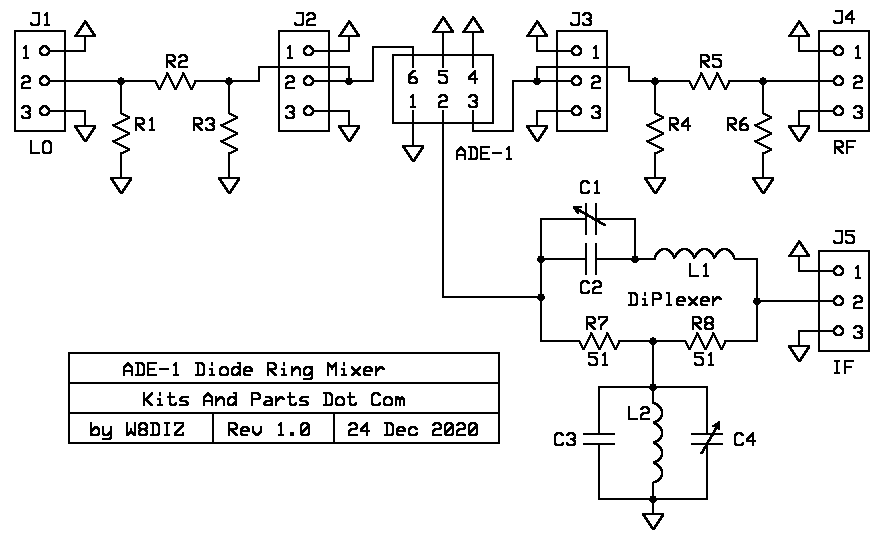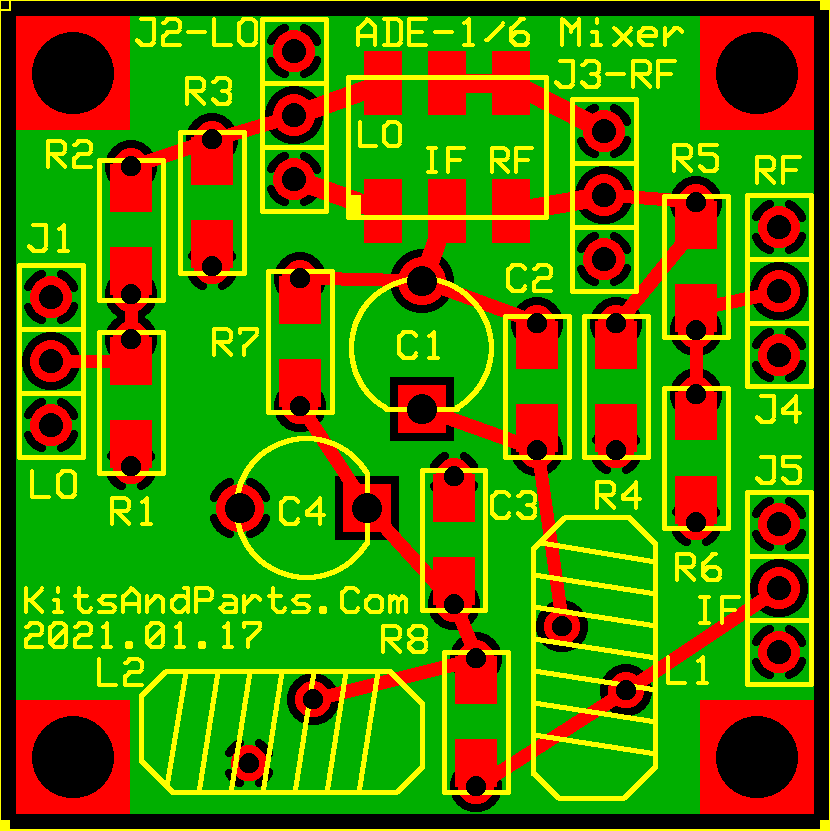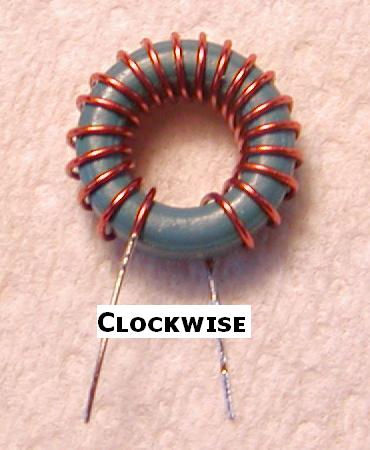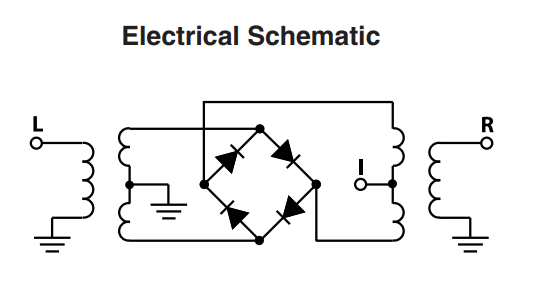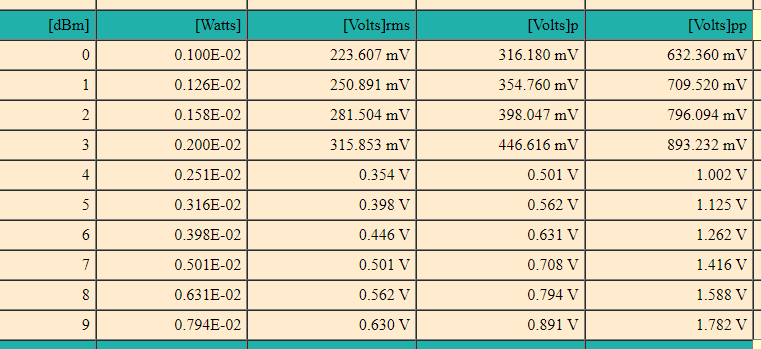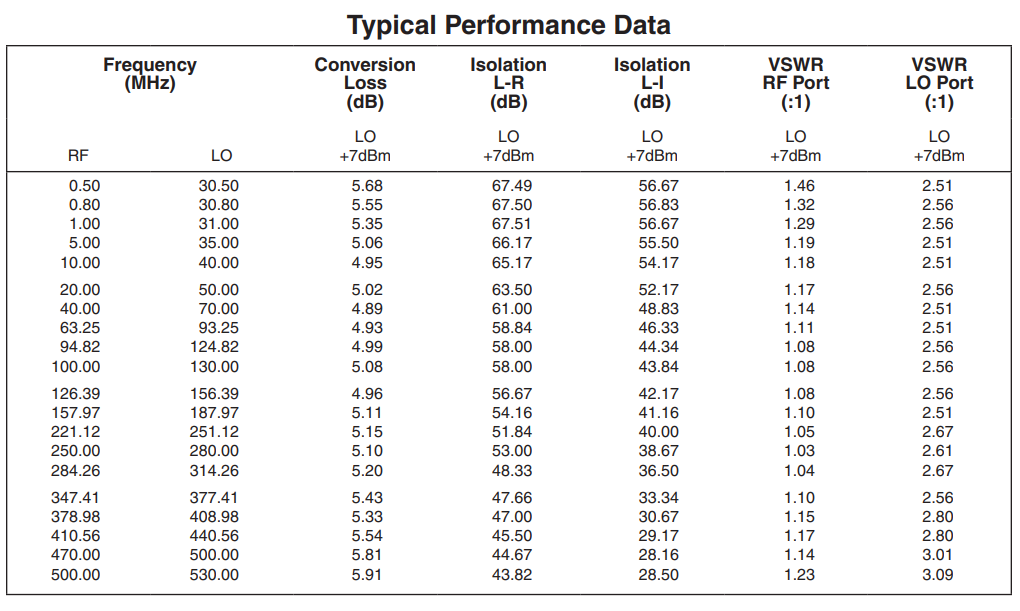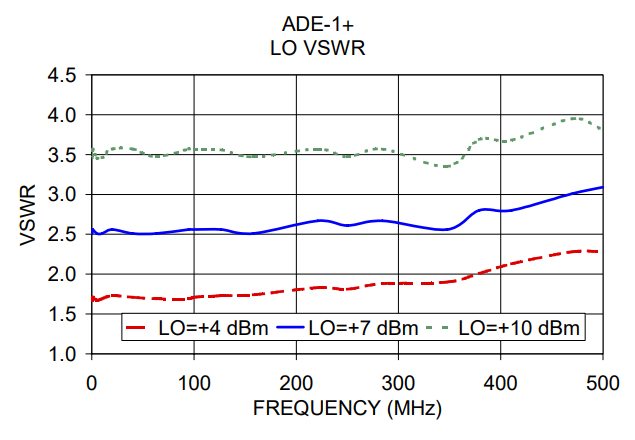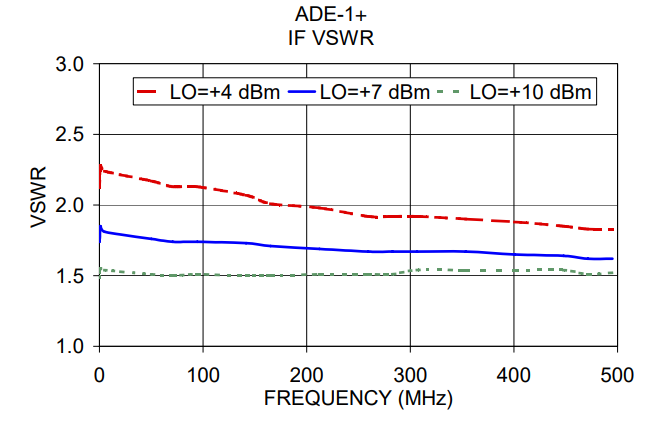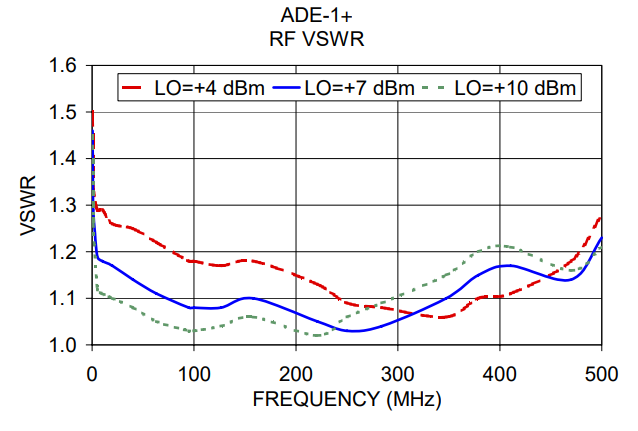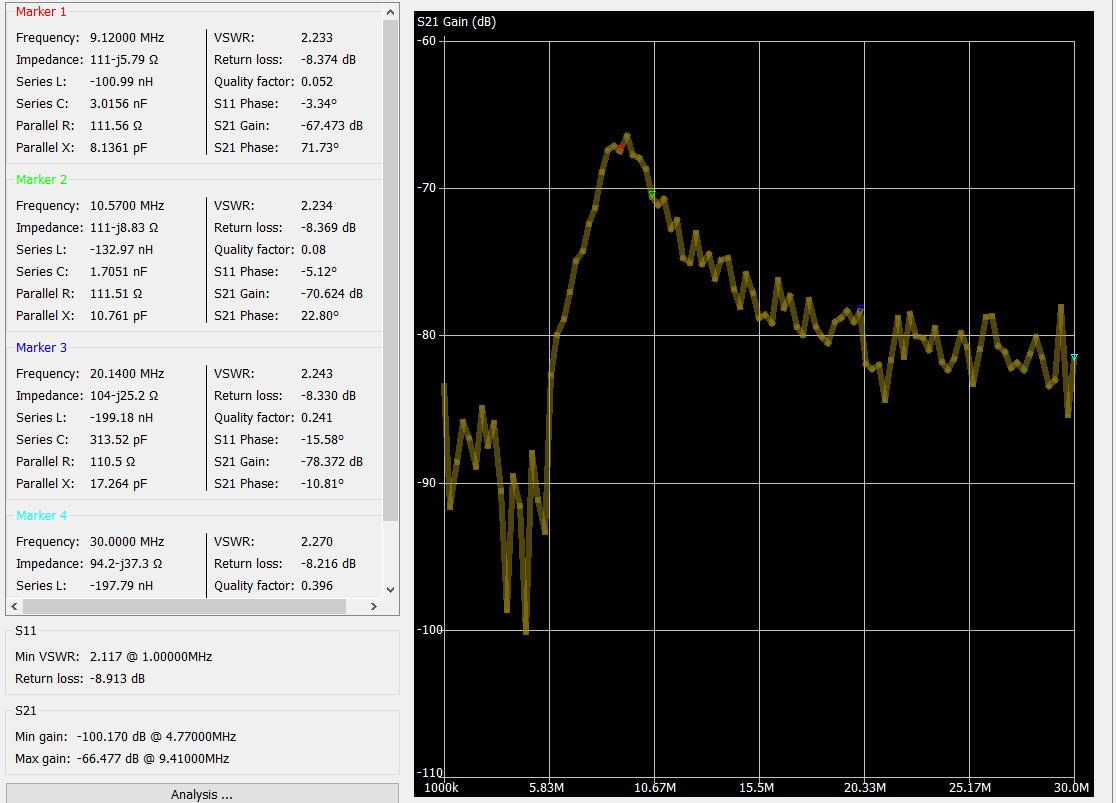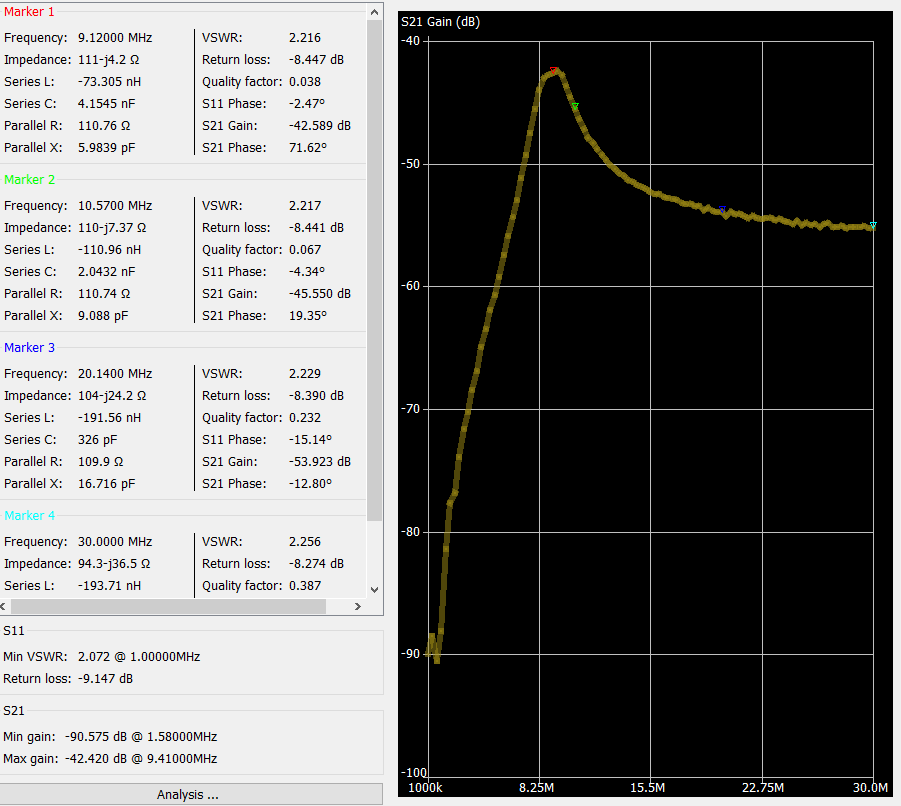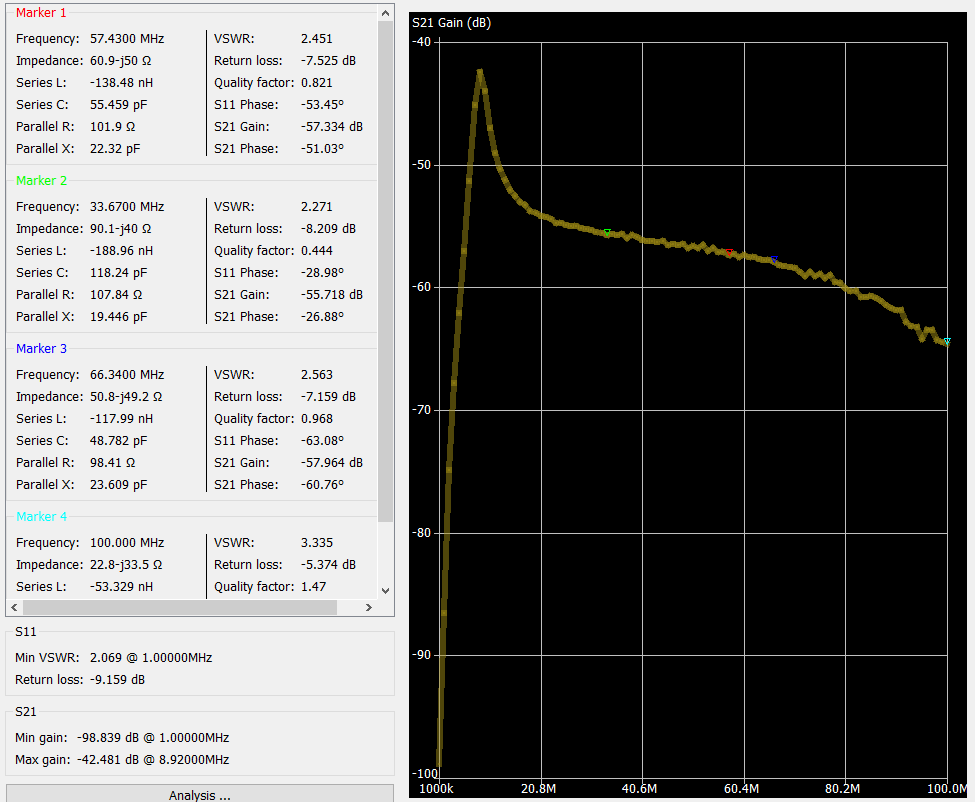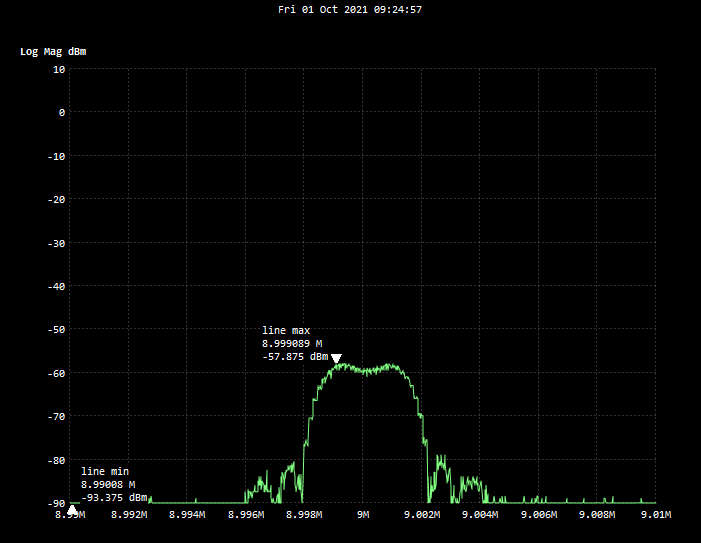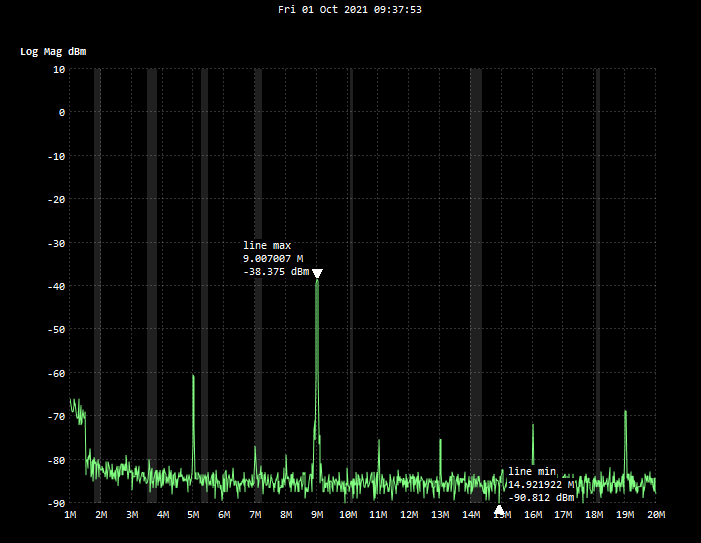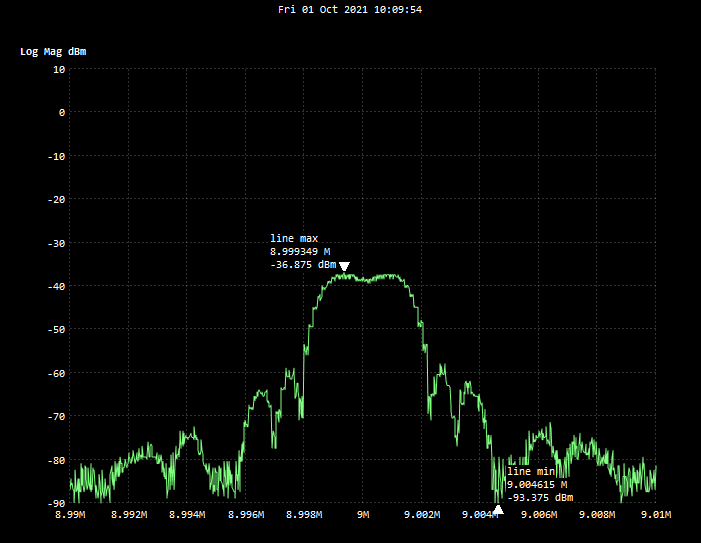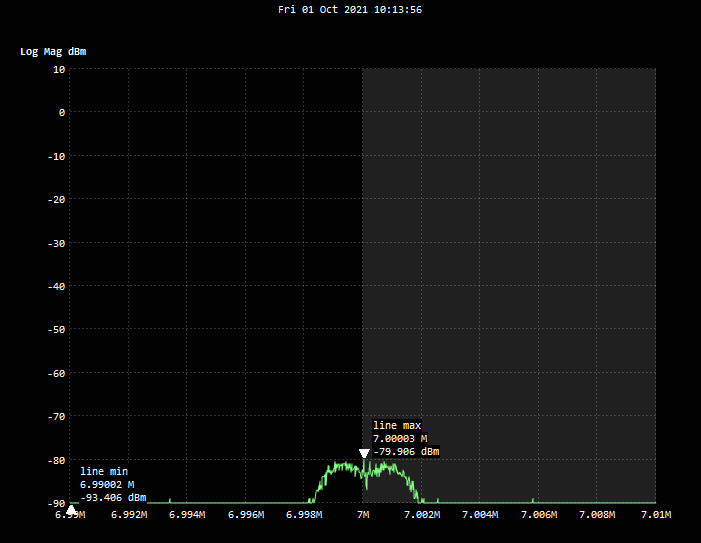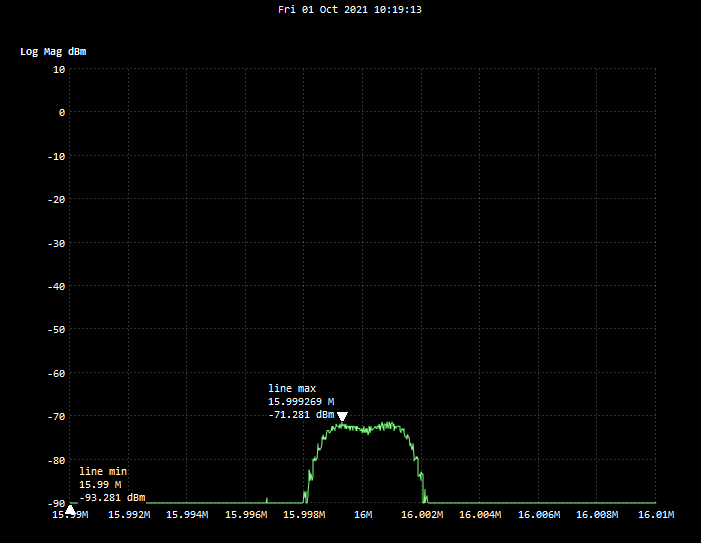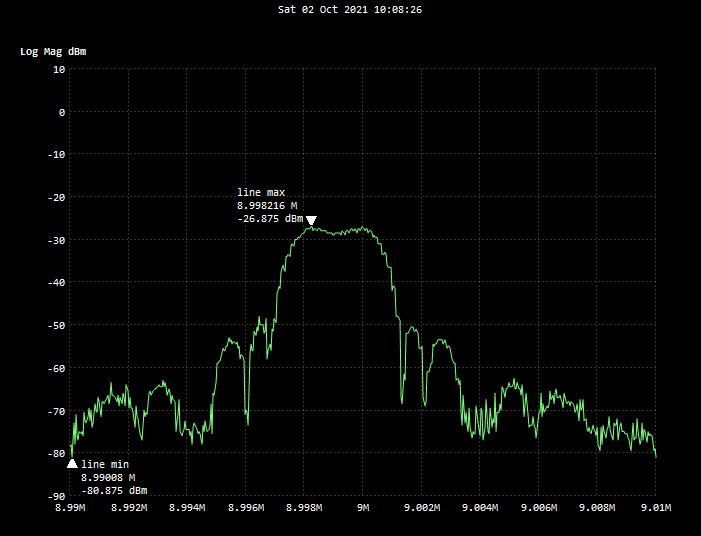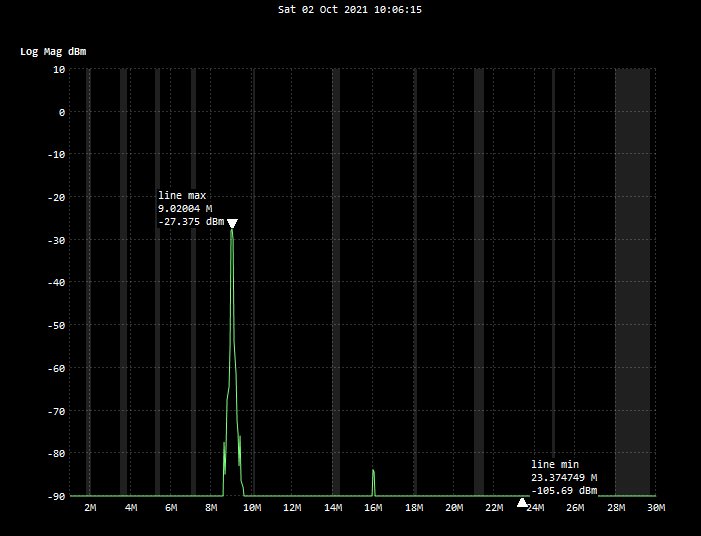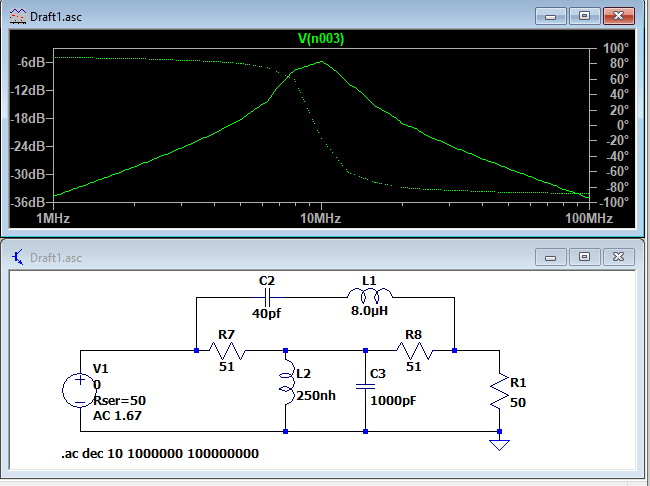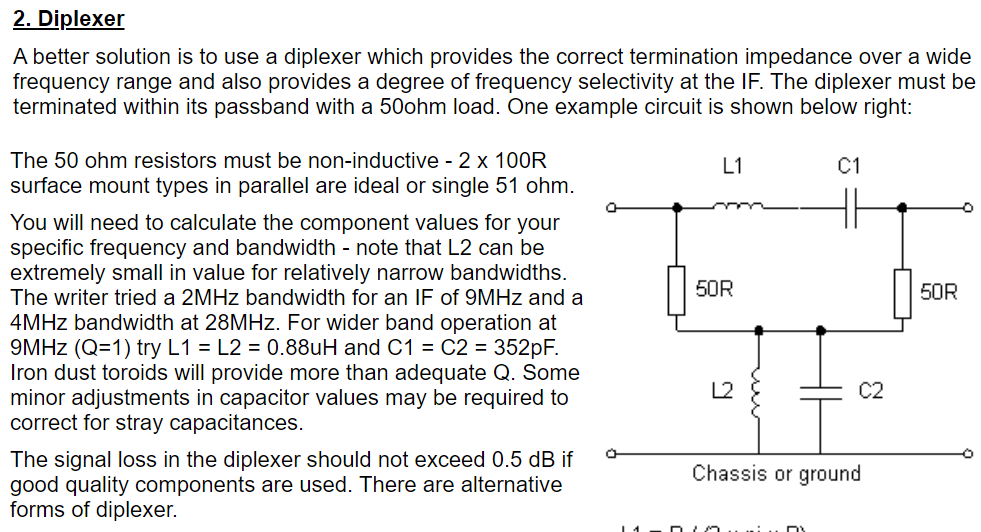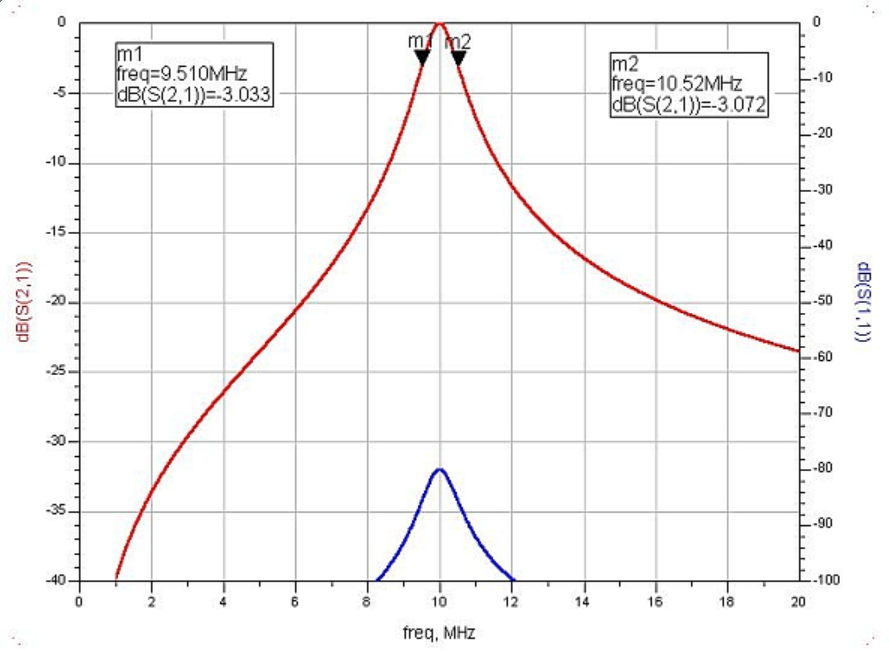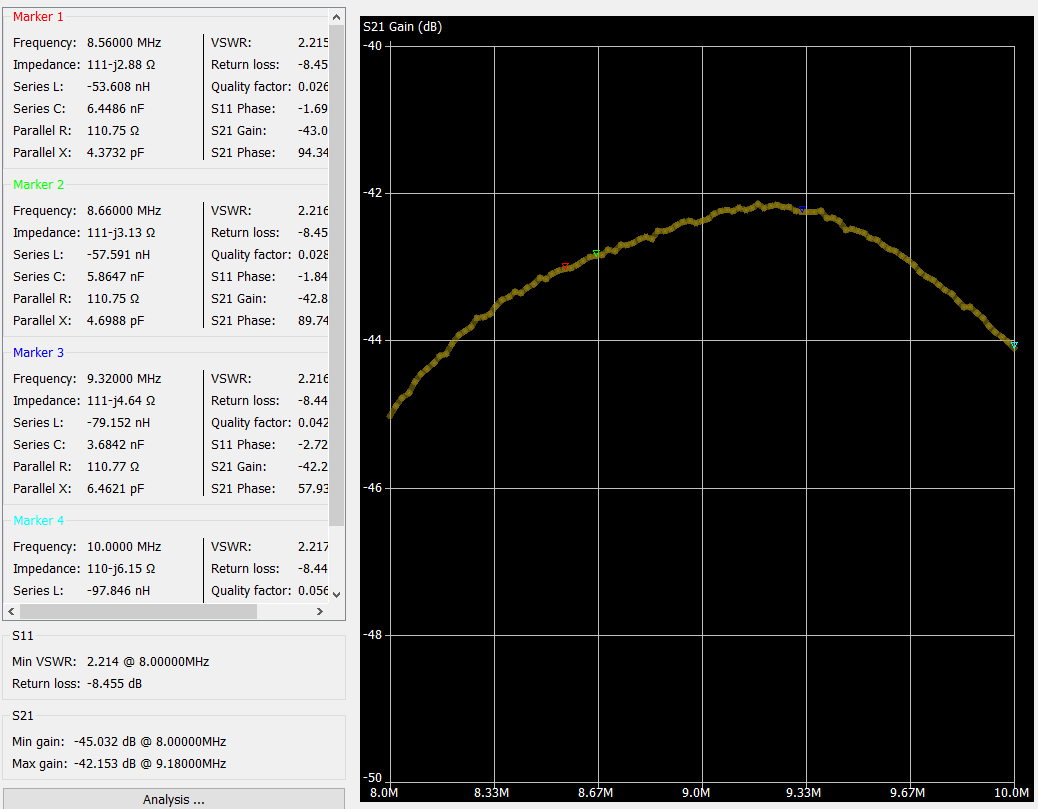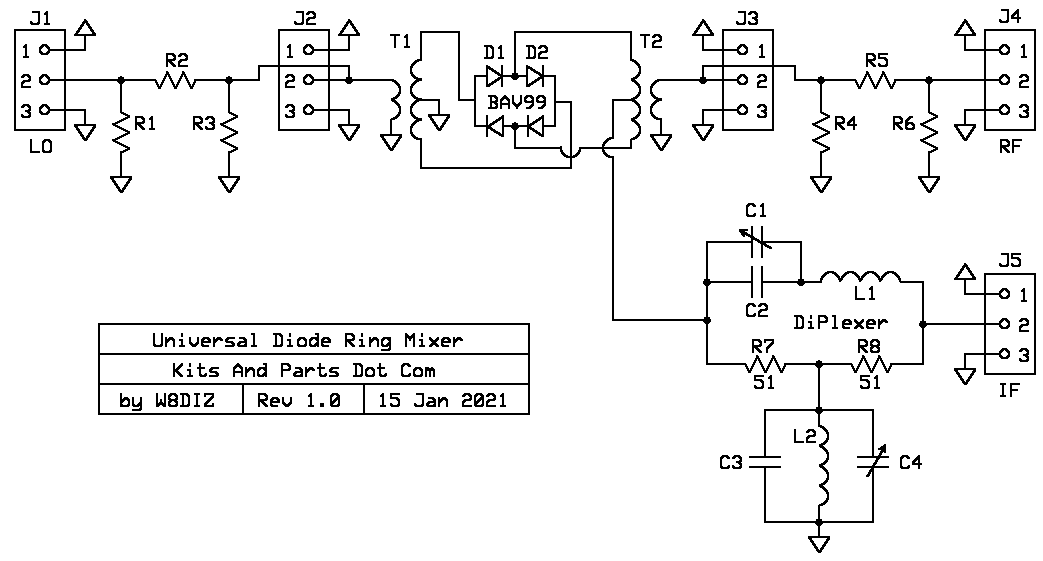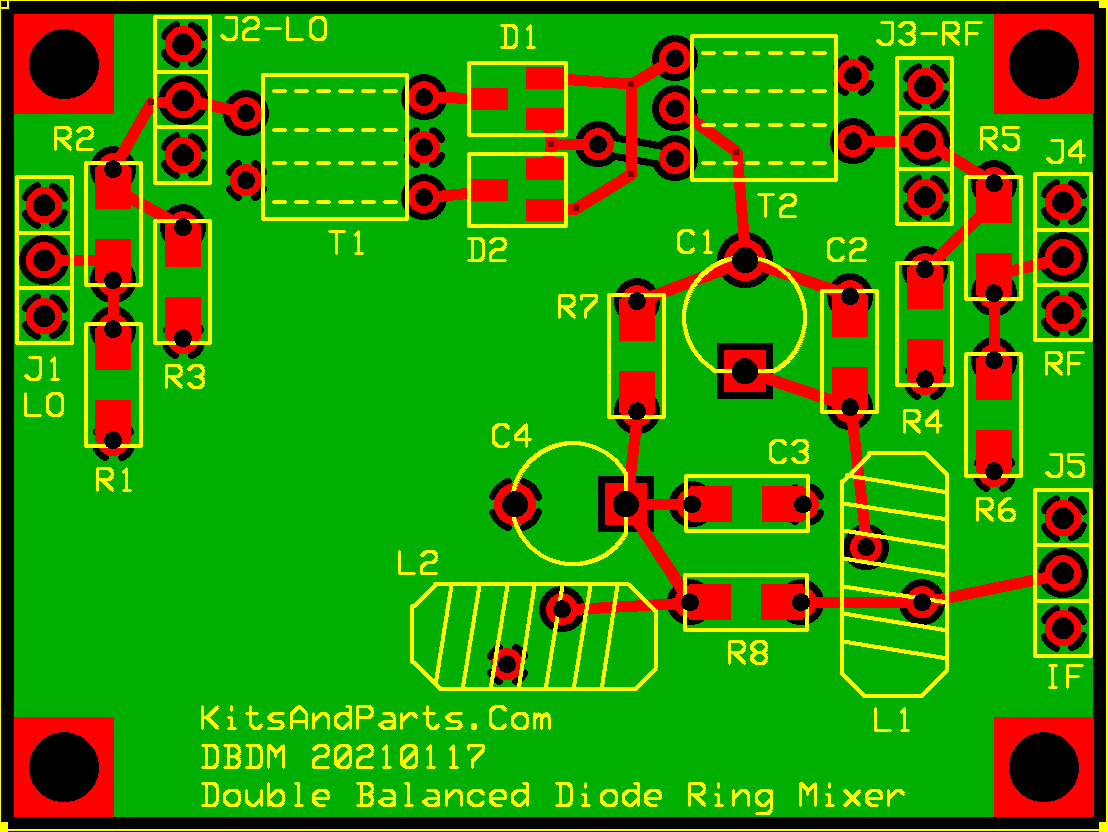Difference between revisions of "Kits and Parts Mixers"
Jump to navigation
Jump to search
Blwikiadmin (talk | contribs) |
Blwikiadmin (talk | contribs) |
||
| Line 127: | Line 127: | ||
* Mixer is driven by [[VFO-001]] 3.3V squarewave outputs | * Mixer is driven by [[VFO-001]] 3.3V squarewave outputs | ||
** Signal levels about 0.5 dBm | ** Signal levels about 0.5 dBm | ||
| − | ** CLK0 = RF @7 MHz [[VFO-001]] output with | + | ** CLK0 = RF @7 MHz [[VFO-001]] output with 20 dB attenuator |
** CLK1 = LO @15.998,6 MHz no attenuator | ** CLK1 = LO @15.998,6 MHz no attenuator | ||
*** Adjusted to find center of the Crystal Filter | *** Adjusted to find center of the Crystal Filter | ||
* IF output from mixer to [[W7ZOI_Filters_on_Kits_and_Parts_Boards#SSB_4_Crystal_Filter_on_Kits_and_Parts_Board|SSB4 Crystal filter]] input | * IF output from mixer to [[W7ZOI_Filters_on_Kits_and_Parts_Boards#SSB_4_Crystal_Filter_on_Kits_and_Parts_Board|SSB4 Crystal filter]] input | ||
* Monitor SSB4 Crystal Filter output on [[tinySA]] | * Monitor SSB4 Crystal Filter output on [[tinySA]] | ||
| − | ** | + | ** No attenuator on IF output into tinySA |
[[file:tinySA_ADE-1-MixerwCystalFilter_9MHz_center.png]] | [[file:tinySA_ADE-1-MixerwCystalFilter_9MHz_center.png]] | ||
Revision as of 14:19, 2 October 2021
Contents
Kits and Parts Mixers Features in Common
- All Ports are 50Ω
- +7dBm Local Oscillator Injection Design
- Full Diplexer at the IF Port
- Optional Attenuators for RF & LO Ports
- Available as bare PCB or kit of parts
My Typical Applications
- 7 MHz RF, 40 M band
- 16 MHz LO
- Si5351A square wave drive
- 50 Ohm source impedance
- 1.65V peak
- Approx. 1 dBm
- Si5351A square wave drive
- 9 MHz IF feeds Crystal Filter
Kits and Parts ADE-1 Mixer
- Kits and Parts Mixer
- Not necessary to build and tune diplexer first using NanoVNA and/or tinySA
- Only 1 cap adjust
- Inductors can be spread/compressed
Toroid Winding Direction
- Toroids needs to be wound to match the pad locations/offsets on the PCB
ADE-1 Schematic
Performance
Port VWSR
- Measured VSWR of 2.23 at 9 MHz with NanoVNA matches spec nicely
ADE-1 Measurements
NanoVNA Measurements
- No RF in
- LO driven by NanoVNA Tx
- About -10dBm output
- IF output to NanoVNA Rx
- IF at 9 MHz
- VSWR: 2.233
- S21 Gain: -67 dB
- NanoVNA
- No LO in
- RF driven by NanoVNA Tx
- IF output to NanoVNA Rx
- IF at 9 MHz
- VSWR: 2.216
- S21 Gain: -42 dB
- Scanning from 1 to 100 MHz
tinySA Measurements
LO to IF port isolation
- Driven by VFO-001 3.3V squarewave output
- Signal level about 0.5 dBm
- CLK0 = 9 MHz into LO port
- Monitor IF output from mixer on tinySA
- Output through 20 dB attenuator (tinySA set to -20dB gain)
Mixer Operation
- Mixer is driven by VFO-001 3.3V squarewave outputs
- Signal levels about 0.5 dBm
- CLK0 = RF @7 MHz VFO-001 output with 30 dB attenuator
- CLK1 = LO @16 MHz no attenuator
- Monitor IF output from mixer on tinySA
- IF out to tinySA with 20 dB attenuator (tinySA set to -20dB gain)
- Same but 9 MHz picked out
- Approx. 8 dB insertion loss
- Look at 7 MHz RF freq on IF output
- Look at 16 MHz LO freq on IF output
Mixer with SSB4 IF Crystal Filter
- Mixer is driven by VFO-001 3.3V squarewave outputs
- Signal levels about 0.5 dBm
- CLK0 = RF @7 MHz VFO-001 output with 20 dB attenuator
- CLK1 = LO @15.998,6 MHz no attenuator
- Adjusted to find center of the Crystal Filter
- IF output from mixer to SSB4 Crystal filter input
- Monitor SSB4 Crystal Filter output on tinySA
- No attenuator on IF output into tinySA
Bridged Tee Diplexer
Diplexor is a bandpass/band-stop filter popularized by Joe Reisert W1JR that is used after a double Balanced Mixer to provide a 50 ohm termination to all frequencies at the mixer's IF port, and to the following amplifier stage. Maintaining a consistent load at the mixer avoids overload and Inter-Modulation Distortion (IMD) effects that these mixers are prone to when not properly terminated.
LTSpice simulation
- 9 MHz
- FT37-67, 20T-12" = 8 uH
- T37-17, 13T-10" = 250 nH
- C2 adjusts peak from left to right
Adjust Diplexer C1 (ADE-1)
- Drive RF port from NanoVNA
- Listen on IF port of NanoVNA
- No drive on LO
- 9 MHz is IF design frequency
- Nano VNA set to scan from 1 Mhz to 30 MHz
- Shows peak at 9 MHz
- Scan from 8 to 10 MHz
- Adjust C1 to peak near 9 MHz
- Eliminate double peaks
Kits and Parts Diode Mixer
- Double Balanced Diode Ring Mixer Kit
- Build and tune diplexer first
Videos
